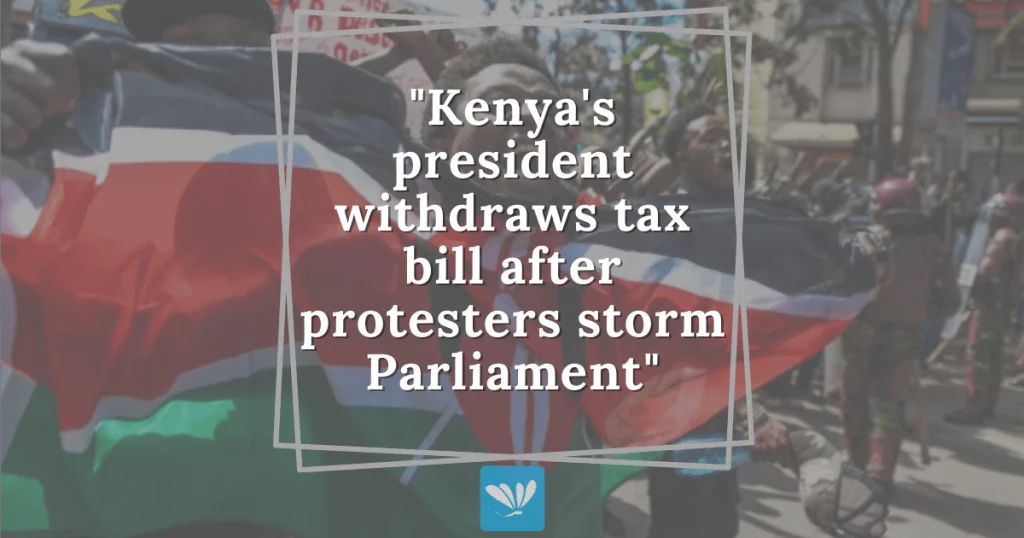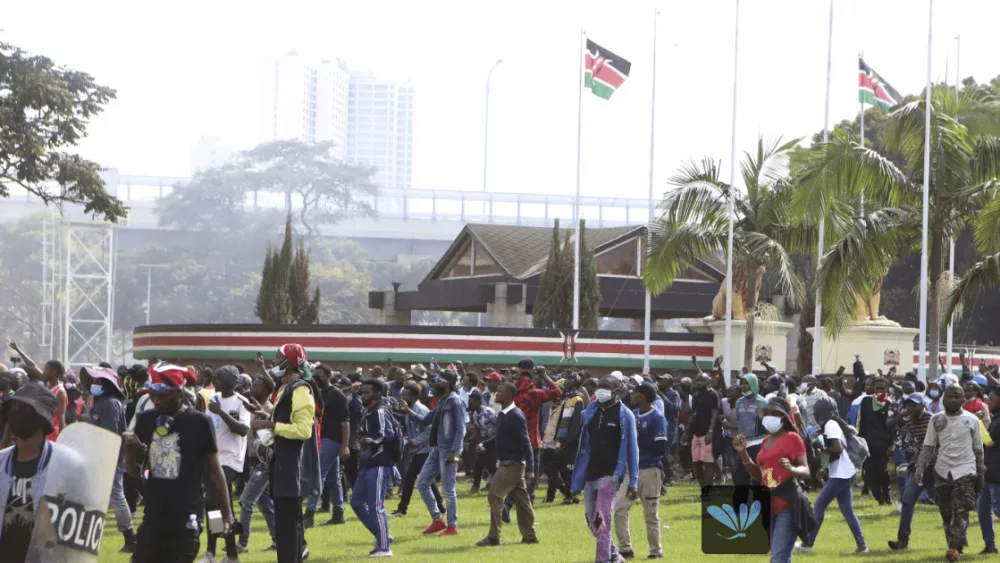“I concede,” Kenyan President William Ruto said, after a month of protests against a bill that would have raised the cost of living for a financially strained and frustrated population.
In a sudden reversal Wednesday, Kenyan President William Ruto said he plans to withdraw a controversial finance bill that had sparked violent protests and a deadly government crackdown that saw 22 people killed Tuesday, when police opened fire on demonstrators who stormed Parliament minutes after the lawmakers passed the bill.
“Listening keenly to the people of Kenya who have said loudly that they want nothing to do with this finance bill 2024, I concede,” he said during a press conference Wednesday, citing “widespread expression of dissatisfaction,” destruction and the loss of life.
“I will not sign the 2024 finance bill and it shall subsequently be withdrawn,” Ruto said.
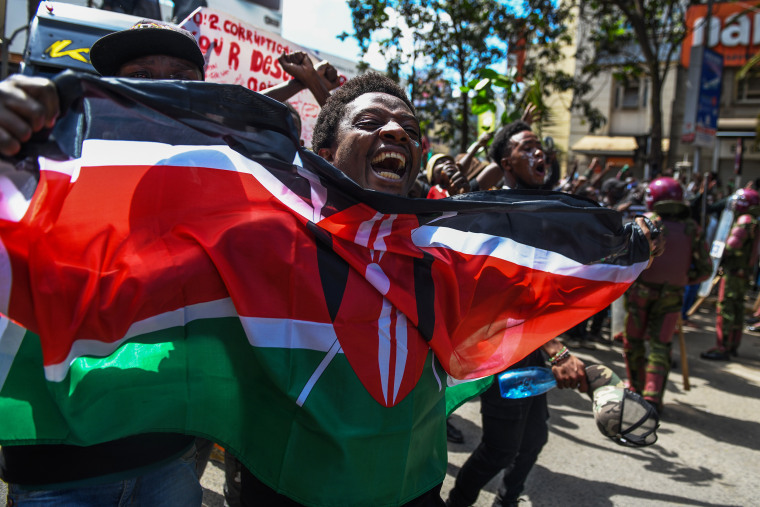
Frustration at the tax bill that would raise the cost of living on an already strained population had exploded into a month of escalating violence in Kenya, which has historically been one of Africa’s most stable democracies. Thousands took to the streets, set Parliament on fire, called for the president’s resignation and threatened to occupy his official residence. According to Reuters, more than 200 protesters were injured in the month of protests.
Economic pressures on poorer Kenyans have been building for years — Ruto’s promises to ease them helped bring him into office in 2022. But amid waves of inflation, the unpopular and wide-ranging plan to hike taxes on items such as egg imports and specialist hospital equipment aimed at closing the country’s huge deficit was the final straw for many younger and poorer Kenyans.
Protests grew in size and ferocity in the run up to a parliamentary vote on the bill Tuesday, with various groups alleging that 50 protesters were abducted ahead of Tuesday’s bloody violence.
“After the bloodshed, this is the only way to get people off the streets and show that he’s a listening, caring president,” Nick Westcott, professor of diplomacy at the London School of Oriental and African Studies, said referring to Ruto’s announcement to scrap the bill. “The crowd may sense they’ve got him on the run, and I think he feels that unless he’s responsive, ‘Ruto must go’ may gather pace.”
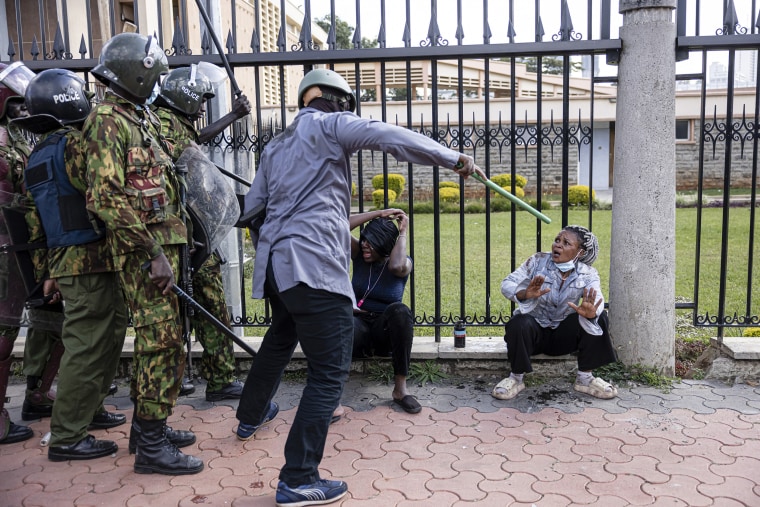
Ruto deployed the military Tuesday to regain control of the legislature, where videos showed demonstrators calling on him to step down. In a televised address, he said that Kenya had “experienced an unprecedented attack on its democracy” and that law-abiding protests had been “hijacked by a group of organized criminals.”
Meanwhile, the government began threatening media outlets covering the protests, with an internet watchdog reporting an outage in the country. Diplomats from 13 countries, including the United States, said in a statement early Wednesday that they were “shocked” by Tuesday’s scenes and “deeply concerned by allegations of abductions” of protesters.
With protests taking hold across the country including into government-supporting regions, Ruto’s remarks were “a knee-jerk response,” said Alex Vines, head of the Africa Program at Chatham House. “The president who had marketed himself as the voice of the masses has been wrong footed by such quick growth across the country of a movement against him.”
The controversial tax plans had been a key part of Ruto’s attempt to right Kenya’s economy. He won power in 2022 by promising poorer Kenyans cheaper fertilizer and relief from economic pain despite the country’s heavy debt burden. As early as his victory speech, though, he acknowledged that “clearly, we are living beyond our means.”

Earlier this week, the seeds of that contradiction bore fruit. Lawmakers voted Tuesday in favor of the finance bill that would have taken effect in July. Kenya’s public debt stands at 68% of the gross domestic product, higher than the 55% that the World Bank and the International Monetary Fund recommend. With the IMF making additional funds contingent on Nairobi meeting revenue targets, it has long been the government’s aim to reduce Kenya’s yawning deficit by raising $2.7 billion in additional taxes.
“It’s astonishing how the narrative amongst the crowd was, ‘This is something the IMF is forcing on us — why are they taking our money?’ The government has clearly not been effective in countering that narrative,” said Westcott, who is also the former director of the Royal African Society.
Historically, other countries in Kenya’s position have decided to default on their debts — a move which makes it harder for a nation to secure future international loans.
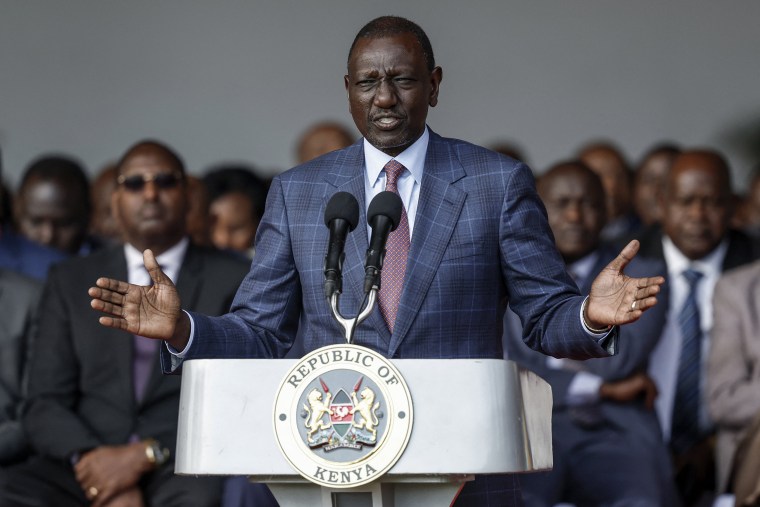
While the government made a U-turn on some parts of the finance bill earlier this month — including tax hikes on bread, mobile banking services and car ownership — those concessions were not enough for a youth-dominated protest movement that has developed organically over social media and appears to lack standout leaders with whom the government can negotiate.
What became clear this week, though, was the depth of the ill-feeling toward the government and its plans. “Over 50% of our population who are under 35 have no jobs,” Auba Obama, a Kenyan activist and former President Barack Obama’s half-sister, told CNN. “We are taxing the jobless and telling them to take a loan. It is not right.”
“The taxes are so high,” one protester in the coastal city of Mombasa told Reuters. “We are being taxed on our salary, and any other thing that you are going to buy with the little you have remaining is also taxed.”
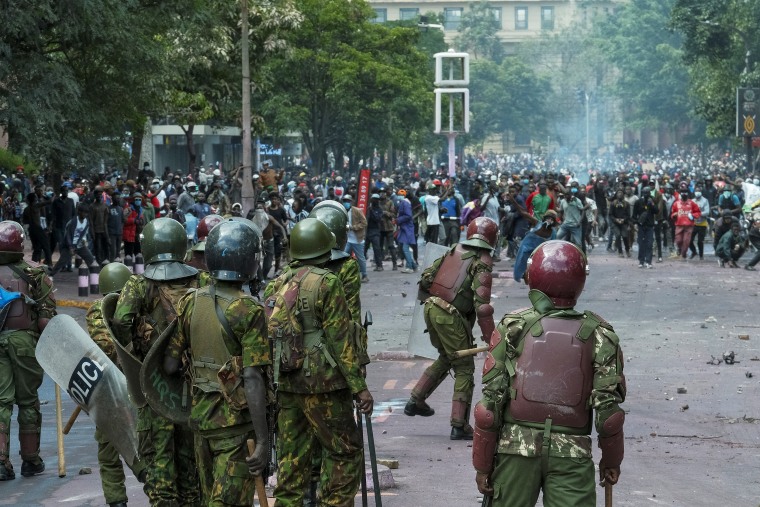
Kenya’s economic struggles in recent years have sharpened inequality in a country with a young population that’s become increasingly frustrated with the lavish lifestyles of Ruto and other politicians. During his victorious election campaign, Ruto had portrayed himself as a ‘hustler’ former-chicken seller.
Prior to Wednesday’s reversal, Ruto was faced with few options. While analysts had posited that further bloodshed or negotiation with the disparate protest movement were potential options, few could have foreseen a turnaround so complete.
“Ruto may have to go back to the IMF,” Westcott said, “and say ‘I need softer terms for your support.’”

